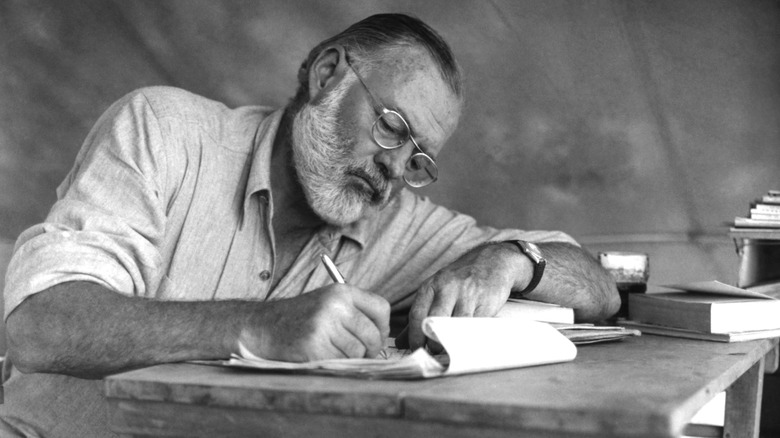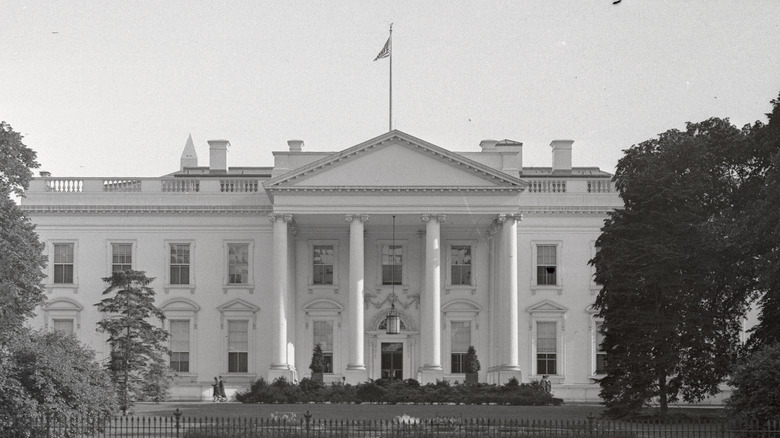Ernest Hemingway Wasn't Fond Of The Food He Ate At The White House
Along with being one of the most prolific American writers of the 20th century, Ernest Hemingway also had an affinity for good food — though a certain sandwich named after him may have you assume otherwise. Hemingway was especially fond of oysters, onions, and game meat he hunted himself. The author of "The Old Man and the Sea" wasn't a particularly picky eater, but he did meet his match at the White House of all places, where he ate what was reportedly the worst food he'd ever had.
After eating with Franklin and Eleanor Roosevelt in 1937, Hemingway wrote a letter to his mother-in-law detailing the frightful meal. "We had a rainwater soup followed by rubber squab, a nice wilted salad and a cake some admirer had sent in. An enthusiastic but unskilled admirer," (per Foreign Policy). We're unsure what "rainwater soup" was exactly, but we can assume that it was something thin, flavorless, and, well, watery.
Post-dinner, Hemingway learned to take the advice of his friend and future wife, Martha Gellhorn, who also dined with the president that night. Gellhorne told Hemingway that it was a well-known secret that the White House food was borderline inedible, which is why she ate three sandwiches before they arrived.
Eleanor Roosevelt's famously bad food
Eleanor Roosevelt was many things: a First Lady, a diplomat, an activist; but one thing she was not was a world-class cook. And while the dreadful meals that came out of the White House kitchen were her idea, they came from a thoughtful place. Franklin D. Roosevelt was in office for most of the Great Depression, which lasted from 1929 to 1939. During this crushing economic time, many Americans only had pennies to feed their family. As the First Lady, Eleanor Roosevelt decided to help establish an affordable menu that was intended to display solidarity with the country's struggling population.
The Roosevelt's kitchen did succeed in producing economical meals for only a few cents, but the food was so unsavory that it became a joke around Washington. The menu often included spaghetti with carrots, bread and butter, cold mutton, and apparently rainwater soup. Luckily, the guests didn't have to foot the bill.
It's true that during the Great Depression, many Americans weren't eating much better than the Roosevelts, but it's still a bit surprising that such awful food was being served to a world leader. We can certainly admire Eleanor's commitment to a conscientious menu, but like Hemingway, we would have been wary if we were invited to dinner.

